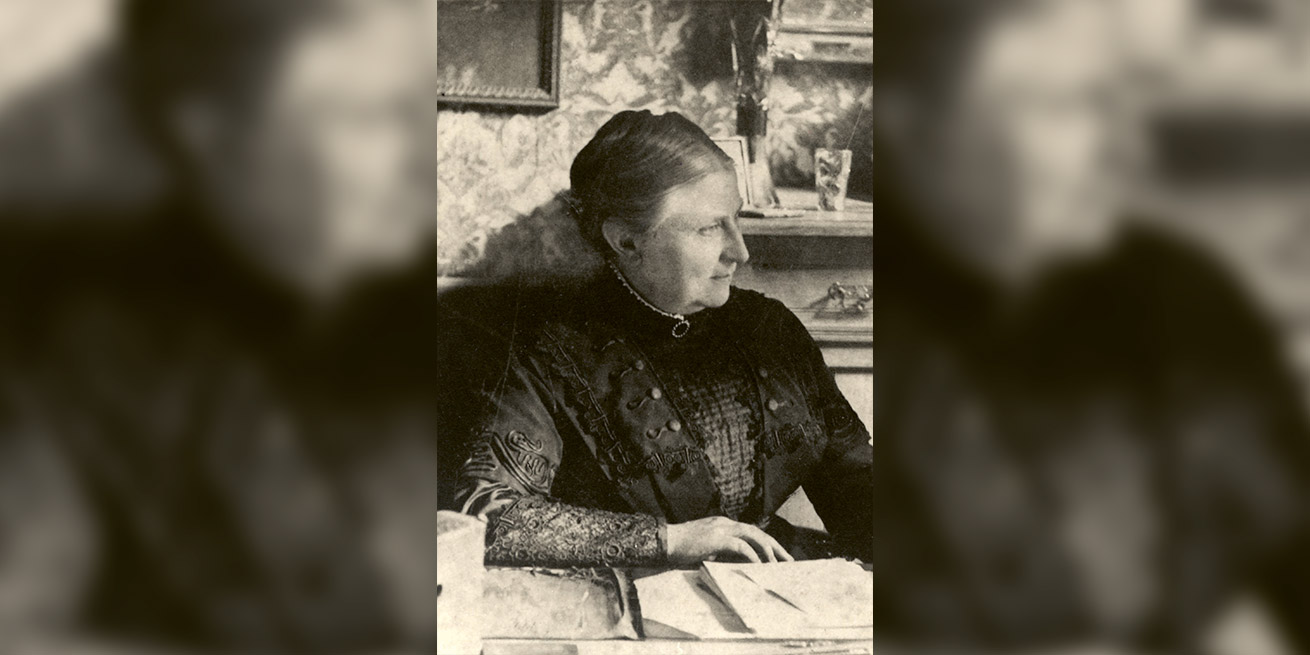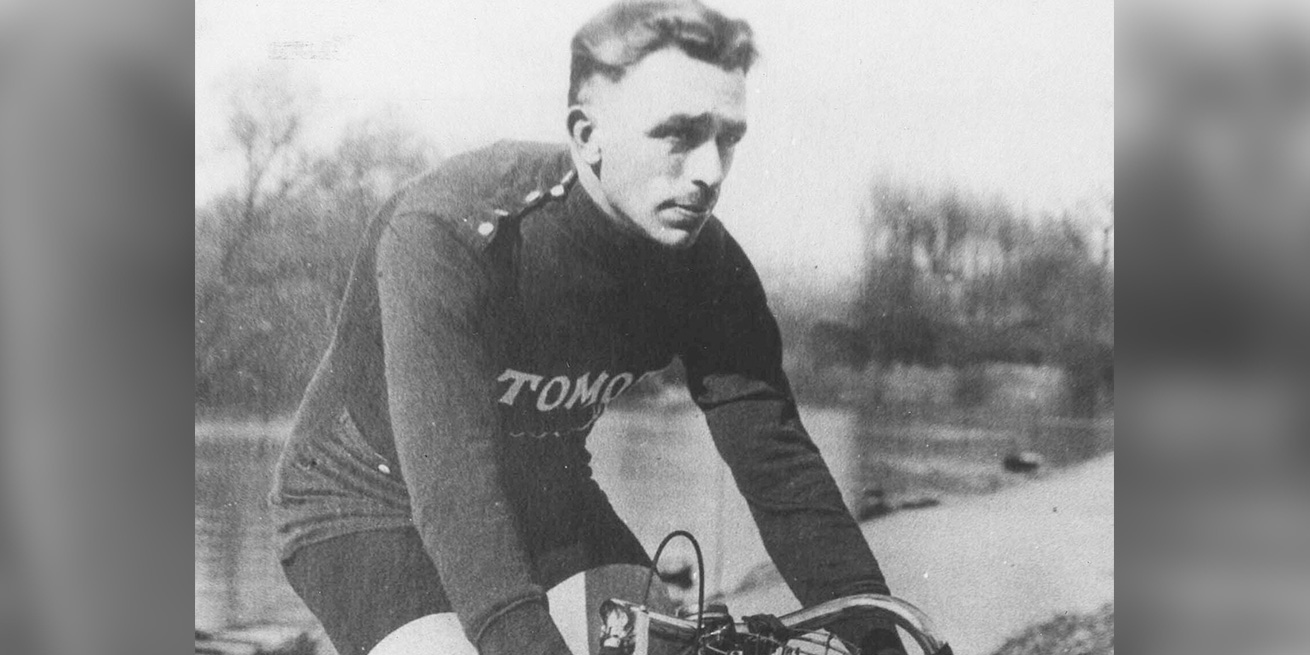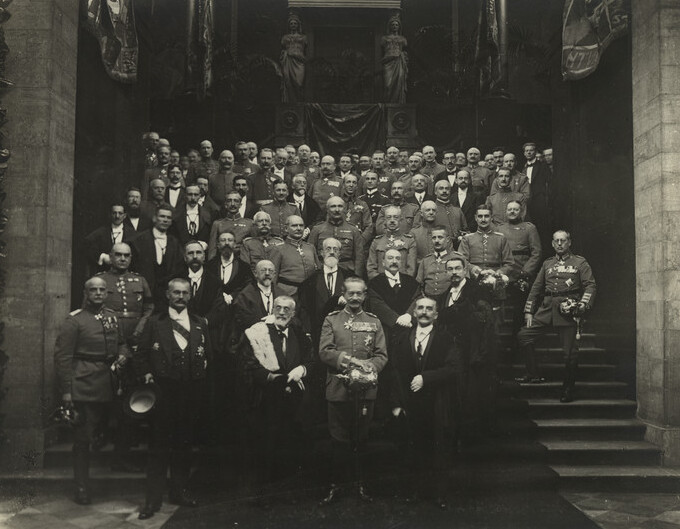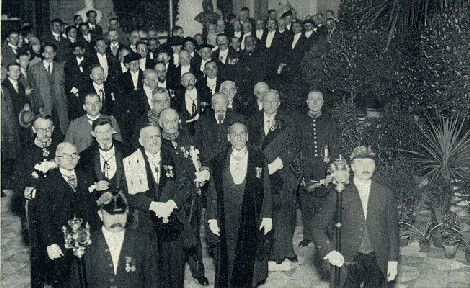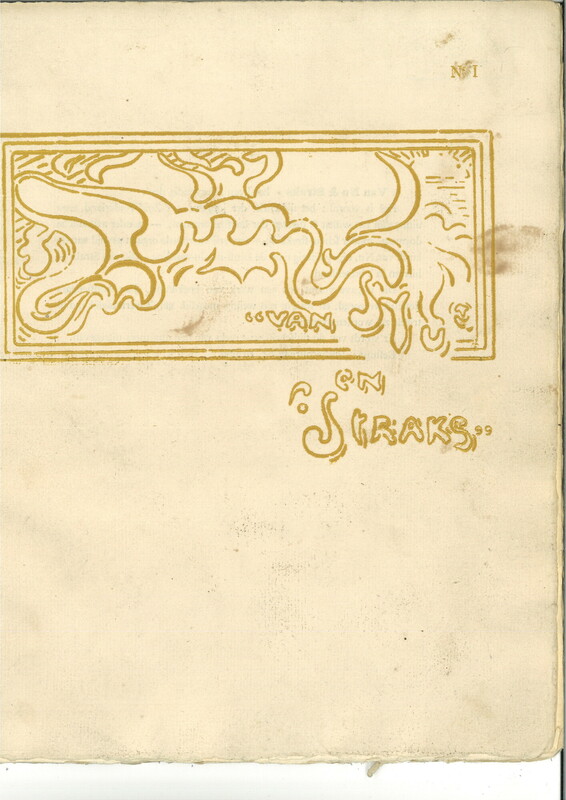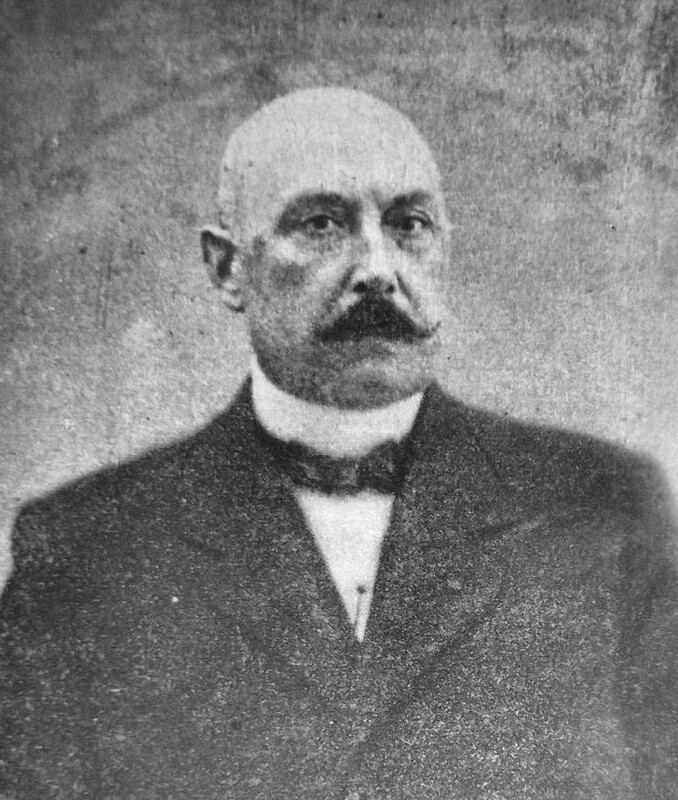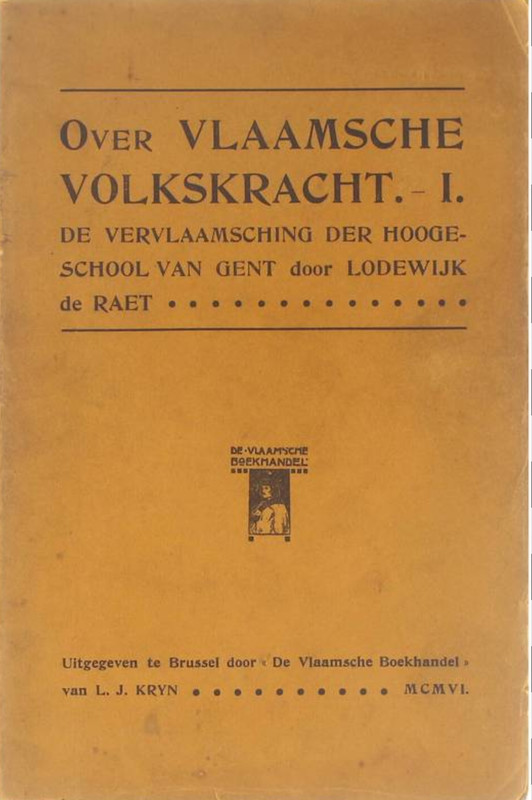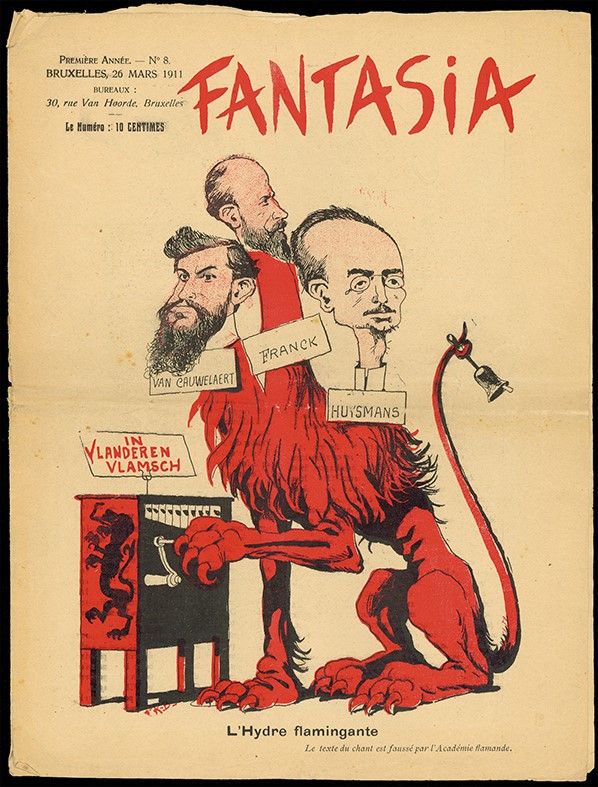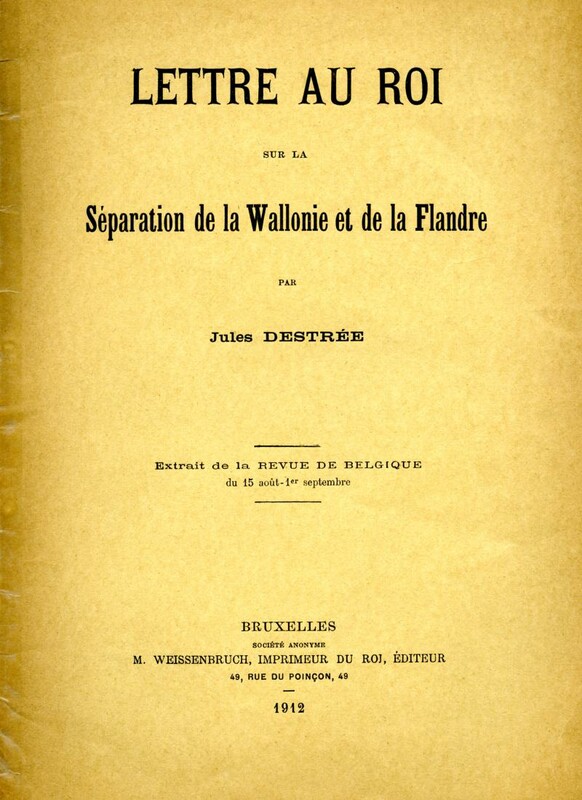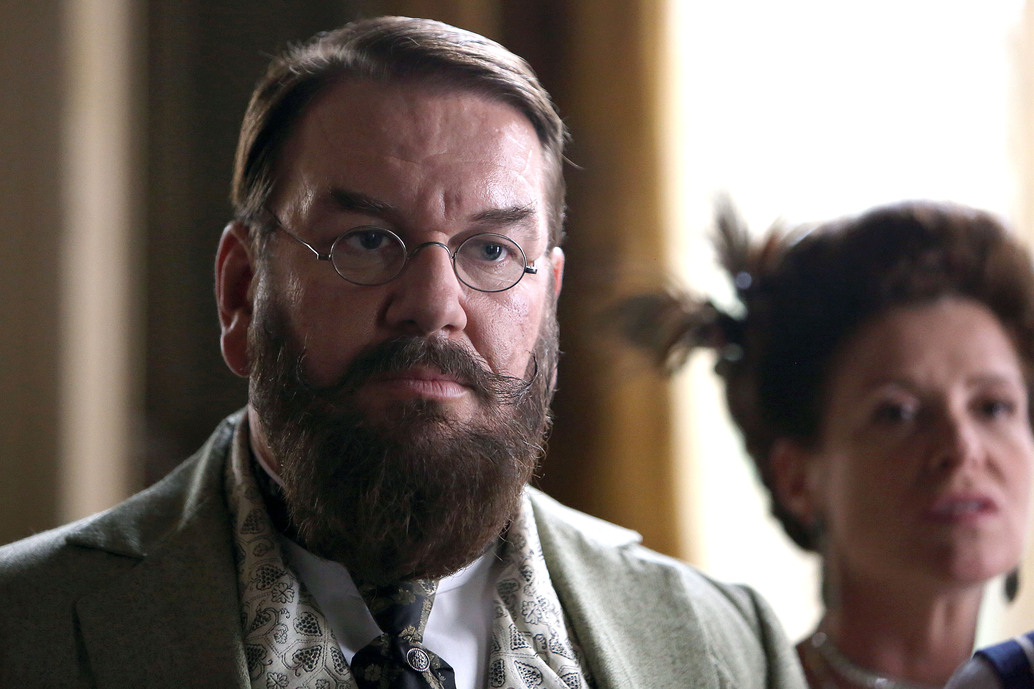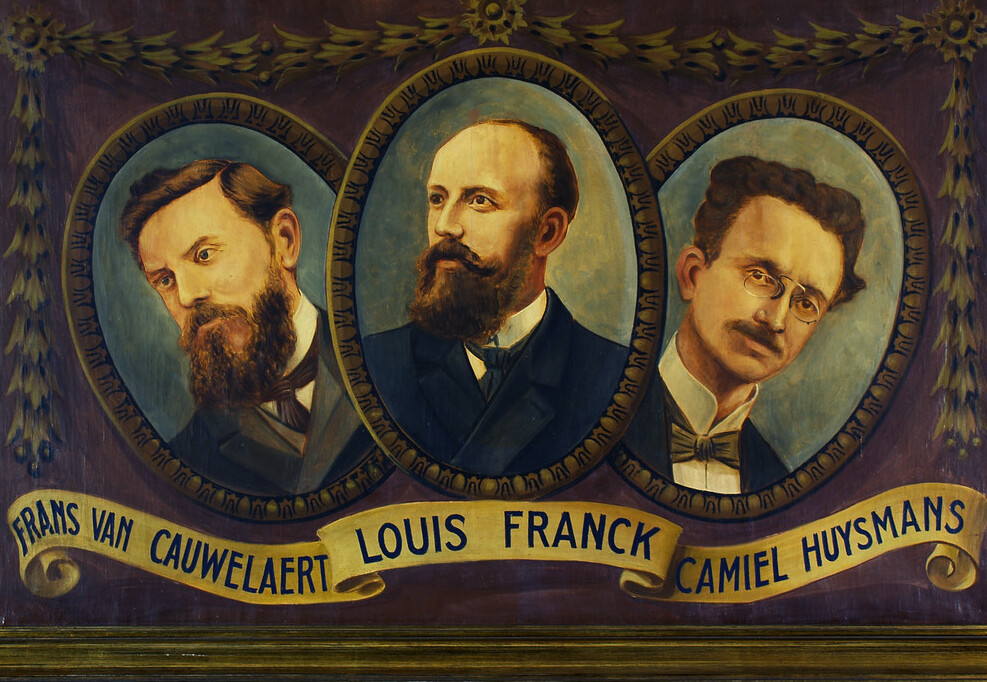
Frans Van Cauwelaert, Louis Franck and Camille Huysmans: the three crowing cocks in a painting of 1910 | Antwerp, Collectie Stad Antwerpen. Letterenhuis, SC 28 C 1
Three Crowing Cocks
The Flemish Movement and the Language Struggle
On 18 December 1910 a meeting in Antwerp caused quite a stir. To a boisterous audience three members of parliament solemnly promised like three cocks to wake the country with their crowing. Their aim: to convince everyone that Flanders had a right to a Dutch-language university.
The three ‘crowing cocks’ were the Catholic Frans van Cauwelaert, the liberal Louis Franck and the Socialist Camille Huysmans. They were as good as their word. In the months after their tempestuous appearance in Antwerp they held over three hundred meetings, from Limburg to the coast, to raise support for their idea. In addition, they collected over 100,000 signatures for a petition, in which they demanded a Dutch makeover for the State University of Ghent.
Dutch-language higher education did not arrive before the First World War, but the impact of the crowing cocks was great. Never before had the Flemish movement reached such a wide public. And the call for a Dutch-language university was not going to be silenced.
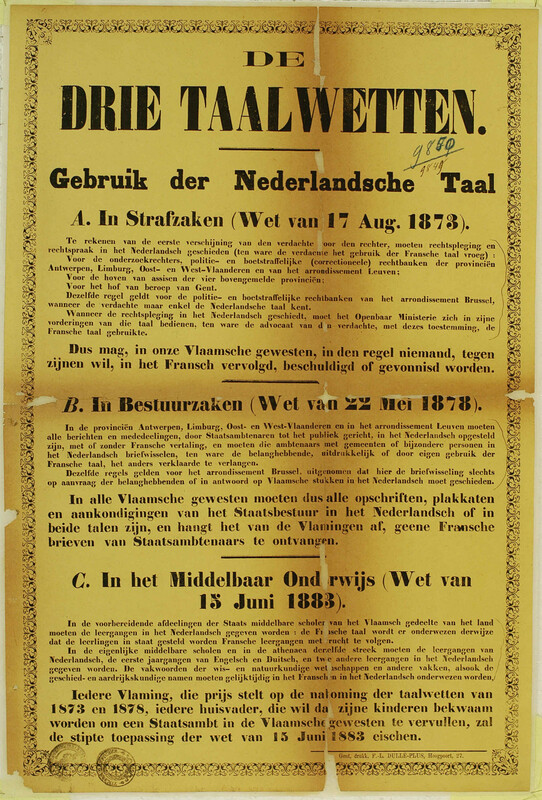
Ghent, Liberas, 22-9-03-4-01-01
The first three language laws introduced a modest Dutchification of the administration of justice in criminal cases (1873), the central government (1878) and public secondary education (1883). On this poster of 1883 the liberal Willemsfonds demands for these language laws to be observed.
The Flemish Movement and the Language Struggle
After the revolution of 1830 the French language dominated the administration, the judiciary and education in Belgium. The Flemish movement soon resisted this. It upheld the rights of Belgians who knew no French.
With a great petition in 1840 so-called flamingants began the struggle for the recognition of Dutch. But it was not until 1873 that a first language law gave rights to those ignorant of French in judicial proceedings in criminal cases. Other language laws followed without affecting the position of French. The opposition between Catholics and Liberals in Belgian politics divided the Flemish movement, but in that way both Catholics and Liberals could link Flemish demands with their vision of society.
Thanks to the introduction of universal male suffrage with plural voting rights, after 1893 many monolingual Flemings could take part in elections for the first time. The Flemish movement widened its aims and now strove for the social and cultural enhancement of the Flemings as a people. That increased its appeal.
In 1898 the Equality Law determined that all future legislation should also be published in Dutch. This was of great symbolic importance. French speakers in Flanders felt threatened. What’s more, in Wallonia there was a fear that rights for Dutch-speakers would be introduced.
From French-speaking resistance to language legislation there emerged a Walloon movement. It even talked of dividing the administration of the country between Dutch and French speakers. Among the pro-Flemish group too disillusion grew. They found the existing language laws insufficient. Some even turned their backs on Belgium completely.
Focal points
Discover more on this topic
Non-fiction
Uit de ivoren toren: 200 jaar universiteit Gent
Tijdsbeeld, 2017.
De schaduw van het interbellum België, 1918-1939
Lannoo, 2017.
Het enfant terrible: Camille Huysmans 1871-1968
Kritak, 1999.
“Maar wat een wespennest!” Het rectoraat van August Vermeylen en de vernederlandsing van de Gentse universiteit
Academia Press, 2010.
Onvoltooid Vlaanderen: van taalstrijd tot natievorming
Vrijdag, 2017.
Jan Frans Willems. Vader van de Vlaamse beweging
De Bezige Bij, 2012.
Het Rode Vaderland: de vergeten geschiedenis van de communautaire spanningen in het Belgische socialisme voor WO I
Lannoo, 2005.
Albrecht Rodenbach: biografie
Lannoo, 2002.
Hugo Verriest: biografie
Lannoo, 2014.
August Vermeylen 1872-1945: leven en werk
Vrijzinnig studie-, archief- en documentatiecentrum Karel Cuypers, 1990.
Waarom Vlaanderen Nederlands spreekt
Davidsfonds, 2001.
Van de Belgische naar de Vlaamse natie: een geschiedenis van de Vlaamse beweging
Acco, 2009.
Onverfranst, onverduitst? Flamenpolitik, activisme, Frontbeweging
Pelckmans, 2014.
Frans van Cauwelaert: politieke biografie
Doorbraak, 2017.
Strijden om taal: de Belgische taalkwestie in historisch perspectief
Pelckmans, 2010.
In Vlaamse Velden
(VRT, 2014).
